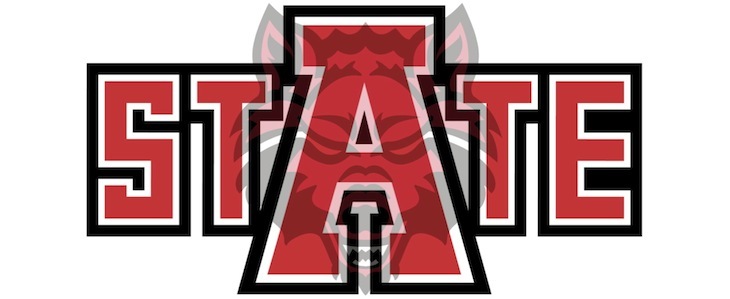Arkansas State University ready to sue University of Miami over canceled game
by February 12, 2018 4:44 pm 502 views

Arkansas State University will sue the University of Miami if a football game scheduled for Sept. 9, 2017 isn’t rescheduled in 2020 or 2021 or if Miami doesn’t pay a buyout fee.
ASU has been negotiating with the university for months after the game was canceled because of Hurricane Irma. The game was slated to be played in Jonesboro, but Miami officials were concerned about travel conditions.
“It is very unfortunate that we have been unable to resolve this matter, and we remain hopeful this can be worked out without the need for litigation. Ultimately that will be up to the University of Miami,” ASU System Counsel Brad Phelps said.
If a resolution can’t be found, ASU will file a lawsuit in the Arkansas state court system, Phelps said. Which court was not specified. Miami officials told Phelps during a phone conversation Friday the school will not pay the buyout, he said.
Administrators for the ASU system had no comment because of the possible of litigation, ASU vice-president for strategic communications and economic development Jeff Hankins said. The buyout stipulated in the contract is $650,000 and must be paid by Feb. 15. Miami officials stated in a letter sent to Phelps Feb. 9 the university has no intention of paying the buyout, and can’t reschedule the game until 2024 at the earliest. It does have open dates in 2020 and 2021, but those are home dates.
Phelps sent a letter to the University of Miami’s general counsel Monday outlining why the game should be rescheduled sooner or the buyout should be paid. ASU Athletics Director Terry Mohajir attempted to have the game moved to Sept. 8 and offered to pay up to $88,000 for a charter flight for the Miami football team to fly into nearby Memphis, the letter states. It was also noted that seven other Florida colleges and universities played games that weekend, and ESPN was willing to move the televised game to Sept. 8.
Hotels could have been reserved in Jonesboro for the team if travel wasn’t possible, and ASU offered to let the team use its facilities to practice, the letter stated.
“Despite these offers, accommodations, and a number of unilateral efforts on behalf of ASU, Miami refused to appear. This refusal caused ASU, the community of Jonesboro and others significant harm,” the letter states.
ASU-Jonesboro Chancellor Dr. Kelly Damphousse talked to Miami President Dr. Julio Frenk to discuss a potential resolution. Mohajir contacted James and told him extending a two-game agreement beyond a decade would be detrimental to ASU. The schools played in Miami in 2013. The open dates in 2020 and 2021 mean the football team could play a game on those dates, but the school is unwilling to schedule it, Phelps wrote.
ASU home games generate $1.285 million in out-of-town tourist economic activity per game, according to a study conducted by ASU. A marquee opponent like Miami would have lured a better than average crowd, meaning the impacts are likely greater.
Most road opponents ask for 4,000 tickets for fans, but more nationally recognized programs ask for upwards of 10,000. If 10,000 tickets had been sold, the tourism economic impacts would have ballooned to $4.251 million. The study didn’t tabulate spending by fans that live in the city correlating to the game or include tailgating.
